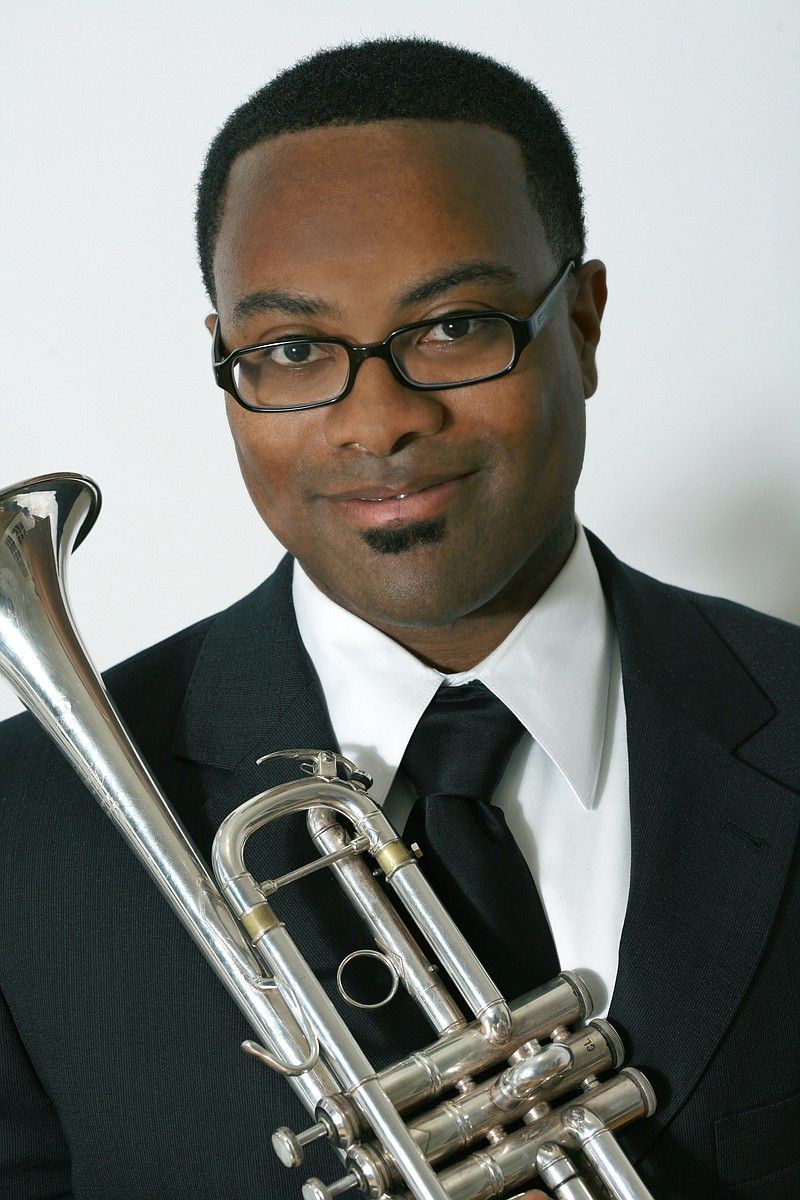Thursday evening at the Tivoli Theater, the Chattanooga Symphony & Opera, under the baton of Music Director Kayoko Dan, performed another exciting and engaging program, this time with music by Franz Schubert, Johann Hummel and Antonin Dvorak. The orchestra was once again in fine voice and in top form, and Maestra Dan led the ensemble with clarity, understanding and expression.
The concert opened with a stirring performance of Franz Schubert's charming Rosemunde Overture, Op. 26. The tuneful first theme was beautifully shaped and phrased by the winds and strings, and the contrasting, sprightly and vigorous section that followed was nicely balanced throughout, with tight musical ensemble.
The featured soloist for the evening was The Metropolitan Opera Orchestra's Principal Trumpet, Billy Hunter. He performed the Trumpet Concerto by Johann Nepomuk Hummel, composed in 1803. It is a tour de force work that takes the soloist through a wide range of technical and stylistic demands, and illustrates the trumpet's two primary stylistic characteristics: the more familiar "declamatory" style (heard in fanfares, bugle calls, short and emphatic musical declarations), and the instrument's "lyrical" ability; hymn-like and singing. The "yang and yin" of trumpet music style, so to speak.
Right from the solo trumpet's first entrance, we hear the distinctive fanfare sound associated with bugles and court trumpeters of days gone by. Mr. Hunter's crisp articulation, precise rhythm and glorious bell-like sound filled the hall, providing the perfect example of the declamatory style so closely associated with the trumpet's ancient roots as a signal and ceremonial instrument, and establishing the predominant affect/style of the first movement.
But, it was in the slow second movement, in particular, that we were presented with the instrument's far less heard and more difficult to achieve lyrical and vocal style. And, this is where Mr. Hunter's own voice most distinctly emerged this night. The impressive fluidity and control of the beautifully ornamented and sustained opening note was followed by long, unwinding phrases that sounded very much like an opera aria.
The trill effects (rapid alternation between consecutive scale pitches) and other melodic ornaments were performed gracefully and with great emotional impact. It is more than likely that Mr. Hunter's highly lyrical style is strongly influenced by the many world-class singers with whom he has the privilege to perform every day at the Met Opera.
In the third and final movement, he really turned up the heat, with a very fast tempo that revealed the full extent of his virtuosity, while still preserving his rich, warm sound. The rapid-fire articulations and soaring high notes brought the enthusiastic crowd to their feet with applause at the work's exciting conclusion.
After intermission, the CSO presented an outstanding performance of the Symphony No. 7 by the great late 19th century Czech composer Antonin Dvorák. And, what a fascinating work this is.
Deservedly or not, it is very often the case that an artist's more famous works tend to eclipse his or her less well-known creations. In Dvorák's case there is an abundance of high quality music living in the shadows of his most popular warhorses, such as his Symphony No. 9, the 'New World' Symphony, which the CSO last performed in 2014. It was then, as always, a joy to hear.
But, there is nowhere to be a found a more perfect example of a work that unjustly goes under-performed these days than the Symphony No. 7, Op. 70 of Dvorák. The piece is, frankly, a revelation to those who may not have heard it before, especially in the context of the composer's other works for orchestra. The overall structure is more ambitious than his other symphonies, and the use of rhythmic play and invention, as well as the frequent harmonic explorations, are unexpectedly rich and profound.
There is an underlying darkness and tragic quality to much of the symphony, and it is among the most challenging, technically, for orchestras to play. Perhaps this may explain why it is not more often performed.
But, one thing is for certain: the Chattanooga Symphony really rose to the occasion this evening, and delivered a totally convincing and passionate performance of this amazing creative work.
Review author Douglas Hedwig was a trumpeter with the Metropolitan Opera Orchestra in New York City for 27 years and also was on the faculty of The Juilliard School. He is Professor Emeritus of Music at Brooklyn College of The City University of New York and his compositions are published by Carl Fischer Music and TNR Music Publishers. He and his wife, writer Mimi Jones Hedwig, moved to Chattanooga in 2013.
